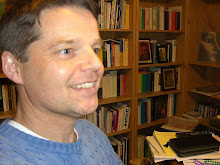Faith, like life itself, is not for tourists who are looking for the quickest and cheapest way to get to their dream destination; faith is for adventure travelers who appreciate being reshaped by the twists and turns, the ups and downs of getting there. Disciples of Christ – a.k.a. the people of “the Way” (Acts 9:20) – are pilgrims with a vision of the holy city in their hearts, traveling light and trusting that God will provide all that is needed.
Lent is an opportunity to travel together without leaving town. The journey takes us to Jerusalem, to the cross, and to the gates of Easter. For forty days, we travel in the company of Hebrew slaves on their way from Egypt to the promised land; in the company of Noah and his family and all the animals who were saved from the flood; in the company of Moses who received God’s holy law for God’s holy people; in the company of Elijah who was zealous for the Lord – and in the company of Jesus who walked our road all the way to the end so that we too might step through the gates of Easter.
Every time we gather for worship, we repeat and rehearse the great journey: we leave the house in response to God’s call and we make our way to the Table where God’s people eat and drink with Christ – and we leave God’s house strengthened for the road ahead, the great journey to the holy city. At Vine Street this year, our worship services during Lent will reveal this journey motif more clearly: every Sunday, we will come to the Table in festive procession to present our gifts and celebrate the Lord’s Supper; we will walk together before we feast together at the heavenly banquet (and we will fast: several hundred disposable communion cups will not end up in a landfill because we share one chalice. You might say we take a few steps from convenience to responsible stewardship).
During Lent, we encourage one another to abstain from the things and habits that keep us from traveling light and fully trusting God: we live more simply so that others can simply live; we discover Lenten disciplines we decide to make year-round practices; we spend less time letting ourselves be distracted, and more time being attentive - all of these things are about fasting, yet none are just about giving up something. They are practices that open us up to living together with justice, compassion, and faithfulness. Every Sunday during Lent, we will include some very specific items in our offering (and these are items we ask all who come to worship to bring).
- On February 10, we bring canned and boxed food items for Second Harvest and our daily “Something to Eat” ministry (we give out bags with peanut butter, crackers, canned fruit, and canned meats to anyone who comes to the door hungry) - because we long to live in a world without hunger.
- On February 17, we bring all kinds of things for babies, like formula, diapers, or clothes; we will give those to families in need - because we long to live in a world where all families are honored and all children are our children.
- On February 24, we bring candles for worship and CFL’s (compact fluorescent lamps) for the light fixtures around the church - because we long to live in a world where both our prayers and our actions for the world are enlightened.
- On March 9, we bring art supplies for Sunday school, camp, and Nashville schools - because we long to live in a world where human creativity is nurtured and celebrated.
- On March 16, we bring white polo shirts for children (school uniforms), as well as white t-shirts and children’s underwear - because we long to live in a world where all of God's children got shoes for the road and a robe for the banquet.
You don’t have to write all these down right away (unless you want to get your shopping list done); there will be a weekly reminder in the newsletter and the Sunday bulletin.
May God bless our Lenten journey!



